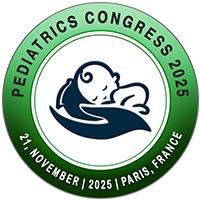
Nayara Mota
Catholic University of Salvador, BrazilPresentation Title:
When attentional difficulties are a sign of psychological violence
Abstract
The number of children reporting attentional difficulties is rapidly increasing. While the initial hypothesis often points to a diagnosis of Attention Deficit Hyperactivity Disorder (ADHD), various factors related to current lifestyles can significantly contribute to diminished attentional capacity. For instance, excessive screen time and sleep deprivation, for example, have shown to interfere in daily cognitive functioning. A specific subgroup of children and adolescents informs pronounced attentional complaints that do not align with their spare performance on neuropsychological assessments. This paper presents several clinical case reports that highlight characteristics of daily attentional difficulties more closely associated with experiences of psychological violence. In common, throughout the neuropsychological assessment, these cases show marked discomfort regarding failure or perceived cognitive challenge. Reduced spontaneity is shown in memory - reduced short-term retrieval, despite high discrimination score in the RAVLT -, and executive functions - reduced flexibility, despite adequate concept formation in WCST. Also, in repetitive tasks, like COWAT or RAVLT, especially when underestimating their own performance adequacy, they show occasional reduced performance in posterior trials, despite having achieved higher performance previously. Understanding these nuances in a clinical setting is essential for refining differential diagnoses and proper neurocognitive interventions. Furthermore, this work inspires future research regarding the dynamics of interaction between neurodevelopment and life experiences, providing valuable insights for translational research.
Biography
Brazilian clinical neuropsychologist and professor of psychology at Catholic University of Salvador (UCSAL). Guest associate editor for frontiers in human neuroscience, Judicial Expert. Postdoctoral fellow at center for Imaging of neurodegenerative disorder, University of California at San Francisco (UCSF)/ San Francisco Veterans Affairs Medical Center (SFVAMC). Postdoctorate at biomagnetic imaging laboratory, UCSF. Associate professor of neuropsychology at Rio de Janeiro State University (UERJ). Doctorate (cum laude)/masters in psychobiology and clinical psychology, from the University of Santiago de Compostela (USC), with a special award for the doctorate achievements. Msc in Neuroscience by Universitat de Barcelona. Major interest in addressing individuality in the neurodevelopment, through a refined characterization of the socioemotional regulation, as well as promoting it through neuropsychological stimulation and generative artificial intelligence. Expects to shorten timeframe for cooperative wellbeing, specially under neural vulnerability, promoting prossocial behaviors, affective bonding and social connectedness. Neuropsychological practice at neurological units, ambulatories and rehabilitation centers, in Spain, United States and Brazil. School manager and neuropsychologist, following up 1 to 15 years-old students' healthy and atypical development. In private practice, Mota provides neuropsychological assessment and rehabilitation to different age groups and clinical conditions. Member of the leading societies of neuropsychology and neurosciences.

